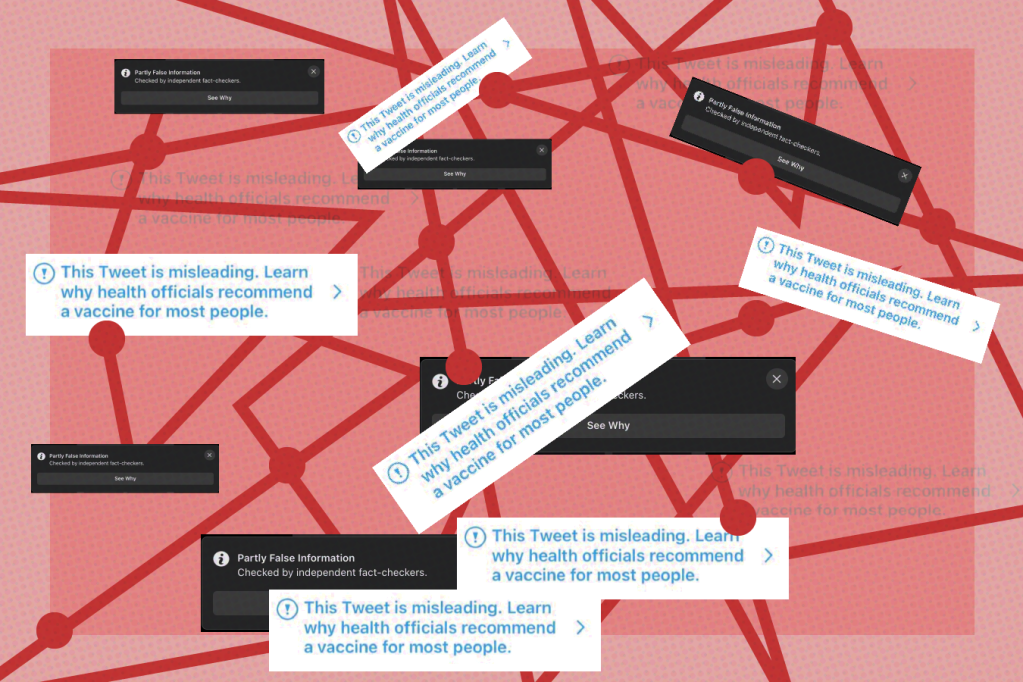— The COVID public health emergency may be over, but this condition isn’t going away
Traci Kurtzer, MD May 14, 2023
“I just don’t know what is wrong with me, but something is off, and I am so forgetful. I feel like I have dementia,” a good friend said to me recently. I recalled that she had been sick with COVID-19 this past year.
I remembered her illness well because I had been very concerned about her. In fact, having recently observed my third anniversary of symptoms that were later determined to be long COVID, it has been particularly hard these past few years to witness those I care about letting their guard down and catching this virus.
Long COVID, also known as post-acute sequelae of COVID (PASC) or post-COVID-19 syndrome, has been defined as a constellation of symptoms, not explained by other diagnoses, that start during or after an infection consistent with SARS-CoV-2 virus and last for 12 weeks or longer. Symptoms can include severe fatigue, cognitive issues described as “brain fog,” dizziness, palpitations, cough, chest pressure, dyspnea on exertion, post-exertional malaise, neuropathic pain, headaches, and/or muscle aches. Approximately 6.1% of U.S. adults are currently suffering and 15.5% have ever had some form of this condition. Long COVID symptoms seem to disproportionately impact women and individuals with a disability. In addition, higher rates of significant activity limitations from long COVID symptoms were initially noted in Black, Hispanic, and multiracial individuals, most likely due to ongoing health access and care disparities.
When I reminded my friend of her prior COVID infection and the known risk of cognitive issues and long COVID, she looked confused and said, “But I was vaccinated, and my symptoms were so mild.”
Why are so many people failing to consider that their new forgetfulness, persistent cough, unexplained anxiety and depression, or their crushing fatigue after engaging in normal exercise might be related to their case of COVID-19? Why are people not taking the risk of long COVID seriously? And perhaps the most important question for us as medical professionals: Are we ready to care for millions suffering from long COVID for the long haul?
Early on in the pandemic, those of us who developed long COVID had no idea what was happening. We had luckily survived the initial viral infection, some mostly asymptomatic like myself and others recovered from mild to severe illness, but then we suddenly found ourselves struggling with various symptoms and unable to function normally. There was no formal diagnosis for the condition; in fact, the term “long COVID” was initially created by the people experiencing it, many of whom were feeling dismissed by the medical community and found each other online. We were called long haulers.
Over the next couple years, researchers and medical professionals also embraced the term, and it became clear that a particular set of symptoms of long COVID met criteria for myalgic encephalomyelitis/chronic fatigue syndrome (ME/CFS). Many with long COVID will recover, but some have had years of symptoms, some have become disabled from severe ME/CFS, and others have experienced other symptoms and conditions, such as postural orthostatic tachycardia syndrome and mast cell activation syndrome. Since mid-2020, there has been an estimated cumulative increase of 1.7 million Americans of working age who have reported a disability, and one study found that about 26% of those with long COVID, or about 4 million people, have altered their employment status or working hours.
Long COVID has other consequences, too. Even if long COVID sufferers can still work, they can find themselves overwhelmed with medical care. An estimated one in five people ages 18 to 64 years who have had COVID-19, and one in four over 65 years experienced an incident medical condition (cardiovascular, pulmonary, hematologic, renal, endocrine, gastrointestinal, musculoskeletal, neurologic, and/or psychiatric) that might be attributable to previous COVID-19 infection — even following mild or asymptomatic infections. Long COVID symptoms and various post-acute sequelae in many organ systems are increased even in vaccinated individuals who experience a breakthrough infection.
In addition, anxiety, depression, and post-traumatic stress disorder are common in both hospitalized and non-hospitalized patients after the onset of COVID-19 symptoms — conditions exacerbated by the absence of a clearly understood etiology and thus no widely accepted treatments for long COVID at present.
Difficult to quantify is the immense sense of loss often experienced by long COVID patients. I grieved on the first warm day of spring this year in Chicago when I would normally have set out for my first outdoor run of the season. It can take time and tremendous patience to accept this “other” person and to adapt to new limitations due to a new, poorly understood condition, especially with so much uncertainty as to the prognosis. Some long haulers may require around-the-clock caregiving, but even for those with lesser symptoms, having long COVID can be very isolating as family and friends may not understand because they recovered “just fine” from COVID-19.
Even worse is that many people suffering with long COVID have experienced having their symptoms dismissed or minimized by their medical caregivers. Some have even been given incorrect advice by healthcare professionals treating the condition as psychosomatic and prescribing cognitive behavioral therapy or graded exercise therapy.
Even I — a doctor trying to get help for ME/CFS symptoms that I referred to as “a mix of vertigo, ADHD, with a concussion and feeling like I was just hit by a bus after running a marathon” — was told by one of my early specialists that “long COVID doesn’t continue over a year out” as they typed in the order for an anti-depressant.
“But I was vaccinated and my symptoms were so mild.”
My friend couldn’t know what a gut punch that sentence was to me. Had all my warnings about the risk of long COVID and my sharing of personal health challenges been ignored? But my hurt soon moved to anger as I ruminated on the fact that it is long haulers like me, who have so little reserve energy left to give, who have been doing the heavy lifting to get the message out.
Where is the government’s continued public health messaging regarding the potential impact on our long-term health if we catch COVID-19, even if vaccinated? Where is the public service information about this potentially disabling condition that can harm not only individual well-being, but also the health of the workforce, and our economy?
It’s a simple message: long COVID is a real condition. It can be potentially serious and can lead to disability. It can happen in those with severe, mild, or asymptomatic COVID-19 infections, and even in those who are vaccinated. To minimize your risk of developing long COVID, you must avoid catching COVID-19.
I gently reminded my friend that she still could have long COVID and that she should get neurocognitive testing and further evaluation at a long COVID clinic if her testing did not point to some other issue. “Also, as hard as it is for you to do, try not to push yourself to your limits too much until you have this figured out, as memory loss is nothing to be cavalier about,” I counseled. She looked at me with skepticism, but the next day she texted: “Can you send me some names of neurologists you would recommend for the testing?”
As a medical professional with firsthand experience of long COVID, I will continue to educate my friends, family members, patients, co-workers, and others in my immediate circle about long COVID and recommend resources. I want to ensure my healthcare colleagues are fully informed about the risk for long COVID so they can decide if they want to take extra measures to avoid infection for themselves, their families, and their patients — or not. Some of us didn’t have that choice and wish we had.
Traci Kurtzer, MD, is the medical director for Trauma Informed Care and Education in the Department of Obstetrics and Gynecology at Northwestern Medicine in Chicago.
Note: This article have been indexed to our site. We do not claim legitimacy, ownership or copyright of any of the content above. To see the article at original source Click Here













